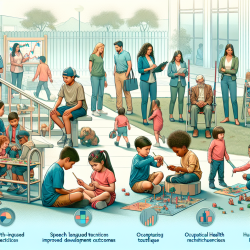Adolescence is a critical period of development, and for youth with developmental disabilities (NDDs), this phase can be particularly challenging. A recent scoping review titled Resilience and adolescence-transition in youth with developmental disabilities and their families: a scoping review explores the factors contributing to resilience in these youth and their families. This blog post will highlight key findings from the review and provide actionable insights for practitioners to improve their skills and outcomes for children.
Key Findings
The review identified over 40 factors influencing resilience across four levels: individual, family, school/peers, and community. Here are some pivotal factors and their implications:
- Social and Emotional Competence: These skills are crucial for managing emotional arousal and engaging positively in social settings. Interventions should focus on enhancing these competencies through structured activities and social skills training.
- Optimism and Positive Attitude: Encouraging a positive outlook can act as a buffer against stress and mental health issues. Cognitive-behavioral strategies that promote positive thinking can be integrated into therapy sessions.
- Family and Peer Relationships: A supportive family environment and positive peer interactions are essential. Practitioners should involve families in therapy and create opportunities for peer engagement.
Implementing the Findings
Based on the review, here are some practical steps for practitioners:
- Holistic Interventions: Develop programs that address multiple levels of resilience, including individual skills, family dynamics, and peer relationships.
- Customized Support: Tailor interventions to the specific needs of each child and their family. This could include personalized coping strategies and emotional regulation techniques.
- Online and Group Sessions: Consider the benefits of online therapy and group sessions to enhance accessibility and peer support.
Encouraging Further Research
The review also highlighted gaps in current research, such as the need for more studies on caregivers' resilience and the effectiveness of different intervention formats. Practitioners are encouraged to stay informed about ongoing research and consider participating in studies to contribute to the growing body of evidence.
To read the original research paper, please follow this link: Resilience and adolescence-transition in youth with developmental disabilities and their families: a scoping review.










